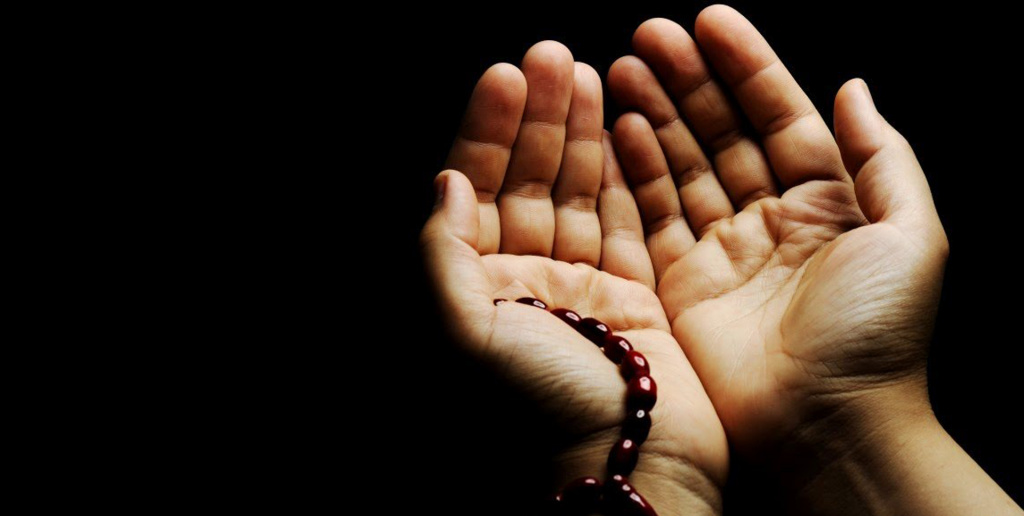بِسْمِ اللهِ الرَّحْمٰنِ الرَّحِيْمِ
Allah says in the Qur’an:
“And when My servants ask you, [O Muhammad], concerning Me – indeed I am near. I respond to the invocation of the supplicant when he calls upon Me. So let them respond to Me [by obedience] and believe in Me that they may be [rightly] guided.” [2:186]
When Allah mentions here that He will without doubt answer our calls to Him this does not necessarily mean that it will be answered how we want. Many of us make the link between Allah’s love for His creation and His answering of Dua – we assume that when He does not answer how we want that we must have done something wrong or are lacking in our worship somehow. This is especially the case when we are in hardship. Let us look at some of the examples that Allah portrays in the Qur’an.
Nuh (Noah), one of Allah’s beloved prophets made Dua for his nation day and night for 950 years.
“He said, “My Lord, indeed I invited my people [to truth] night and day.” [71:5]
Yet they departed from him every single day.
“..But my invitation increased them not except in flight.
And indeed, every time I invited them that You may forgive them, they put their fingers in their ears, covered themselves with their garments, persisted, and were arrogant with [great] arrogance.” [71:6-7]
This included his family whom he constantly made Dua for guidance and they still ended up with the disbelievers. Nuh was an honoured prophet of Allah and yet he did not have his wish fulfilled. This was a very similar story to our prophet Muhammad (ﷺ) who made Dua for his father figure Uncle who also did not end up as a Muslim.
Look at our beloved mother Maryam who in the hardest of situations – pregnant with a miracle baby with nobody around to help, waiting to give birth and having to face her people while not being married – she called out for death and for nobody to look for her after she was gone.
“And the pains of childbirth drove her to the trunk of a palm tree. She said, “Oh, I wish I had died before this and was in oblivion, forgotten.” [19:23]
Allah acknowledges that we go through hardships and suffering, all in our own ways. However, Dua is not to be answered how we wish – we must remember that Allah has the bigger picture, He knows what is best. Even through hardship there is benefit, one way or another. Take our mother Maryam, her giving birth and taking care of her baby brought a prophet of Allah to the people who guided many people to the path of Islam.
Our prophet Yusuf also suffered a great deal; thrown down a well and taken a slave as a child, imprisoned for years. After years of suffering he was approached by a king who asked Yusuf to decipher a dream that he had which was one of the miracles that Allah gave to His prophet.
“[Joseph] said, “You will plant for seven years consecutively; and what you harvest leave in its spikes, except a little from which you will eat.” [12:47]
He then carried on with the dream explaining to them a threat that was coming:
“Then will come after that seven difficult [years] which will consume what you saved for them, except a little from which you will store.” [12:48]
This information saved the nation with thousands of babies and children from starvation. If Yusuf was not imprisoned where he was, the king would not have received this warning – one man’s hardship saved thousands from suffering.
The point Allah makes is that we as Muslims must acknowledge Allah’s wisdom and knowledge, just as these honoured people before did. We put our faith in Him when we make Dua, hoping that it will be answered how we wish but knowing that even if it does not, Allah will ease our hardship in another way, and never forget that Allah loves His people. Through one person’s hardship there will be many doors of ease that will open up just as He says:
“For indeed, with [one] hardship [will be] ease [in multiplicity].” [94:5]
May Allah make us of those who put their faith in Him whatever the situation and may He ease the struggles of all Muslims around the world.
Allah knows best.
